Our cookies
We use cookies for three reasons: to give you the best experience on PGS, to make sure the PGS ads you see on other sites are relevant , and to measure website usage. Some of these cookies are necessary to help the site work properly and can’t be switched off. Cookies also support us to provide our services for free, and by click on “Accept” below, you are agreeing to our use of cookies .You can manage your preferences now or at any time.

Privacy overview
We use cookies, which are small text files placed on your computer, to allow the site to work for you, improve your user experience, to provide us with information about how our site is used, and to deliver personalised ads which help fund our work and deliver our service to you for free.
The information does not usually directly identify you, but it can give you a more personalised web experience.
You can accept all, or else manage cookies individually. However, blocking some types of cookies may affect your experience of the site and the services we are able to offer.
You can change your cookies preference at any time by visiting our Cookies Notice page. Please remember to clear your browsing data and cookies when you change your cookies preferences. This will remove all cookies previously placed on your browser.
For more detailed information about the cookies we use, or how to clear your browser cookies data see our Cookies Notice
Manage consent preferences
Strictly necessary cookies
These cookies are necessary for the website to function and cannot be switched off in our systems.
They are essential for you to browse the website and use its features.
You can set your browser to block or alert you about these cookies, but some parts of the site will not then work. We can’t identify you from these cookies.
Functional cookies
These help us personalise our sites for you by remembering your preferences and settings. They may be set by us or by third party providers, whose services we have added to our pages. If you do not allow these cookies, then these services may not function properly.
Performance cookies
These cookies allow us to count visits and see where our traffic comes from, so we can measure and improve the performance of our site. They help us to know which pages are popular and see how visitors move around the site. The cookies cannot directly identify any individual users.
If you do not allow these cookies we will not know when you have visited our site and will not be able to improve its performance for you.
Marketing cookies
These cookies may be set through our site by social media services or our advertising partners. Social media cookies enable you to share our content with your friends and networks. They can track your browser across other sites and build up a profile of your interests. If you do not allow these cookies you may not be able to see or use the content sharing tools.
Advertising cookies may be used to build a profile of your interests and show you relevant adverts on other sites. They do not store directly personal information, but work by uniquely identifying your browser and internet device. If you do not allow these cookies, you will still see ads, but they won’t be tailored to your interests.
Course type
Qualification, university name, phd in london.
631 degrees at 42 universities in London.
Customise your search
Select the start date, qualification, and how you want to study

Related subjects:
- PhD Archaeology
- PhD Architecture
- PhD Biology and Life Sciences
- PhD Building, Planning and Construction Management
- PhD Chemistry
- PhD Communications and Media
- PhD Computer Science and Information Technology
- PhD Creative Arts and Design and Illustration
- PhD Economics
- PhD Education
- PhD Electronic and Electrical Engineering
- PhD Engineering
- PhD English Literature
- PhD Environmental Health and Safety, Protection and Conservation
- PhD Financial Management and Accounting
- PhD Food Science and Technology, Nutrition and Dietetics
- PhD Gallery, Conservation and Museum Studies and Museology
- PhD Geography and Earth Sciences
- PhD Health Care Management and Health Studies
- PhD History
- PhD Humanities and Social Sciences
- PhD Industry, Logistics, Manufacturing and Production
- PhD Journalism and Publishing
- PhD Languages
- PhD Law and Legal studies
- PhD Leisure, Hospitality Management and Event Management
- PhD Linguistic Studies
- PhD Literature
- PhD Management, Business and HR
- PhD Marketing and PR
- PhD Mathematics
- PhD Nursing and Midwifery
- PhD Other Sciences and Research
- PhD Performing and Dramatic Arts, Acting and Music Studies
- PhD Philosophy
- PhD Physics
- PhD Physiotherapy and other Therapies
- PhD Psychology
- PhD Religious Studies and Theology
- PhD Social Work, Community Work and Counselling Skills
- PhD Sports and Recreation
- PhD Surgery, Medicine and Dentistry
- PhD Teaching and Training
- PhD Tourism and Travel
- PhD Transport Services and Aviation

- Course title (A-Z)
- Course title (Z-A)
- Price: high - low
- Price: low - high
Psychology PhD
Birkbeck, university of london.
An PhD is an advanced postgraduate research degree that requires original research and the submission of a substantial dissertation of Read more...
- 4 years Full time degree
- 7 years Part time degree
Epidemiology and Population Health PhD
London school of hygiene & tropical medicine, university of london.
& Structure The MPhil and PhD are aimed at students who anticipate a career in which research plays a major role and who want to focus on Read more...
- 4 years Full time degree: £7,070 per year (UK)
- 8 years Part time degree: £3,535 per year (UK)
SOAS University of London
The Law Research Degree (PhD) programme run by the School of Law accepts candidates for research work leading to a PhD. The central Read more...
- 3 years Full time degree: £4,860 per year (UK)
- 6 years Part time degree: £2,430 per year (UK)
Business School MPhil/PhD
Middlesex university.
This programme will give you the opportunity to carry out cutting edge research that will help you understand the challenges of business Read more...
- 3 years Full time degree: £6,300 per year (UK)
- 6 years Part time degree: £3,150 per year (UK)
PhD Drama, Theatre and Performance
University of roehampton.
Research conducted in the School of Arts, Humanities, and Social Sciences covers a wide range of diverse and innovative arts practices, Read more...
- 4 years Full time degree: £4,711 per year (UK)
- 7 years Part time degree: £2,356 per year (UK)
Marketing, Events and Tourism, MPhil/PhD
Faculty of engineering & science, university of greenwich.
Our marketing, events and tourism research degree (MPhil/PhD) allows you to undertake rigorous and critical exploration of one or more of Read more...
- 1.5 years Full time degree
- 2.5 years Part time degree
Business PhD (Doctor of Philosophy)
Kingston university.
Whether you are planning a career in academia or as a professional researcher, our Business PhD will enable you to develop your skills Read more...
- 3 years Full time degree: £4,786 per year (UK)
PhD in Finance
Bayes business school (formerly cass business school), city, university of london.
About the PhD in Finance programme On the PhD in Finance programme, you have the opportunity to join a thriving and international Read more...
- 4 years Full time degree: £4,880 per year (UK)
Philosophy PhD
Royal holloway, university of london.
About us The Philosophy programme at Royal Holloway offers a broad range of research supervision, with academic staff working both the Read more...
- 4 years Full time degree: £4,786 per year (UK)
Mphil Phd School of Business and Law
University of east london.
The School gives postgraduate research students the chance to learn from the best academic minds and industry experts. You’ll be studying Read more...
- 3 years Full time degree: £6,020 per year (UK)
- 5 years Part time degree: £3,010 per year (UK)
Computer Science PhD
Brunel university london.
Research profile Research in Computer Science at Brunel is internationally recognised, ranked 5th in the UK in the Performance Ranking of Read more...
- 6 years Part time degree: £2,393 per year (UK)
General Engineering PhD
London south bank university.
This programme provides specialist study for graduates intending to work in research and development environments in a variety of Read more...
- 6 years Distance without attendance degree: £4,820 per year (UK)
- 3 years Full time degree: £4,820 per year (UK)
- 5 years Part time degree: £2,892 per year (UK)
Artificial Intelligence Enabled Healthcare MRes and MPhil/PhD
Ucl (university college london).
The CDT programme consists of a 1 year MRes followed by a 3 year PhD. Throughout this period the CDT will continue to closely monitor the Read more...
- 1 year Full time degree: £6,035 per year (UK)
- 2 years Part time degree: £3,015 per year (UK)
PhD Astronomy
Queen mary university of london.
The Department of Physics and Astronomy at the Queen Mary University of London is one of the UK’s elite research centres in internationally Read more...
Translational Medicine PhD
University of west london.
Our School of Biomedical Sciences offers excellent research opportunities in doctoral research in Translational Medicine to improve human Read more...
- 4 years Full time degree: £3,995 per year (UK)
- 6 years Part time degree: £2,000 per year (UK)
Doctor of Philosophy - MPhil / Phd
London metropolitan university.
A PhD is conducted purely by research. Each PhD is the unique development of your individual research project, performed under the Read more...
- 3 years Full time degree: £6,500 per year (UK)
- 4 years Part time degree: £3,250 per year (UK)
Computer Science and Information Systems MPhil/PhD
- 4 years Full time degree: £4,712 per year (UK)
- 7 years Part time degree: £2,500 per year (UK)
Public Health and Policy PhD
Phd in anthropology and sociology.
A majority of our PhD graduates have embarked on an academic career, taking up lectureships in universities in the UK as well as abroad, or Read more...
We have a long and distinguished history in educational research, working to ensure that all young people are able to benefit from Read more...
1-20 of 631 courses
Course type:
- Distance learning PhD
- Full time PhD
- Part time PhD
Qualification:
Universities:.
- Institute of Advanced Legal Studies, School of Advanced Study, University of London
- Royal College of Music
- Warburg Institute, School of Advanced Study, University of London
- London School of Theology
- King's College London, University of London
- Royal College of Art
- Imperial College Business School
- London Film School
- Courtauld Institute of Art, University of London
- London School of Economics and Political Science, University of London
- Imperial College London
- Hult International Business School
- Amity University [IN] London
- Institute of English Studies, School of Advanced Study, University of London
- Institute of Cancer Research, University of London
- University of London Worldwide
- Institute of Commonwealth Studies, School of Advanced Study, University of London
- Architectural Association School Of Architecture
- London School of Commerce
- Regent's University London
Related Subjects:
Website navigation
In this section
- Imperial Home
- Postgraduate doctoral
- Application process
Choose a course

The different routes to achieving a PhD at Imperial
Looking for funding.
Use our scholarships search tool to look for available scholarships. Also explore our latest funded PhD vacancies .
A PhD (Doctor of Philosophy) is the most common type of doctoral degree and the highest level of academic qualification you can achieve.
It normally takes between three and four years of full-time work to complete. It is also possible to undertake a PhD part time, over five to six years.
The main activity of a PhD is to carry out an original research project under the direction of one or more supervisors, to be written up as a thesis.
Different routes to achieving a PhD
There are a number of ways to achieving a PhD at Imperial:
- by undertaking a course of study based on your own research proposal
- by joining a research project that comes with funding attached (known as a studentship)
- by combining it with Master's study in an integrated route that typically lasts four years
Pursuing your own research idea
To search for PhD opportunities based on your own research proposal you first need to identify a research group within Imperial whose area of expertise best matches your idea.
Use the links below to search the different PhD opportunities within our academic departments, centres and institutes. This includes information about current studentships and often guidance on finding a supervisor.
Our interdisciplinary approach means our expertise often spans departmental boundaries – and so do our courses – so you may find opportunities in an unexpected area of the university.
Faculty of Engineering
- Aeronautics
- Bioengineering
- Chemical Engineering
- Civil and Environmental Engineering
- School of Design Engineering
- Earth Science and Engineering
- Electrical and Electronic Engineering
- Mechanical Engineering
Faculty of Medicine
- Department of Brain Sciences
- Department of Immunology and Inflammation
- Department of Infectious Disease
- Department of Metabolism, Digestion and Reproduction
- Department of Surgery and Cancer
- National Heart and Lung Institute
- School of Public Health
Faculty of Natural Sciences
- Life Sciences
- Mathematics
- Centre for Environmental Policy
Imperial College Business School
- Doctoral programme
Centre for Languages, Culture and Communication
- PhD in Arabic, German, Italian, Russian and Spanish Studies
- PhD in science communication studies
Global Challenge institutes
We have six Global Challenge institutes, which were created to address some of society's biggest challenges.
If you have an idea for a PhD that falls within the remit of one of our Global Challenge institutes please contact them directly to discuss before making a formal application.
- Data Science Institute
- Grantham Institute – Climate Change and the Environment
- Institute for Molecular Science and Engineering
- Institute for Security Science and Technology
- Institute of Global Health Innovation
Energy Futures Lab does not offer PhD programmes, but does deliver the MSc in Sustainable Energy Futures .
Joint Academy of Doctoral Studies | Imperial College London-Technical University of Munich
We have recently formed a strategic partnership in education, research and innovation with the Technical University of Munich, one of Germany’s most international and entrepreneurial universities, producing highly ranked research, like Imperial, in science, engineering and medicine.
As part of the partnership, Imperial and TUM have launched a 'Joint Academy of Doctoral Studies' with the aim of co-developing cross-disciplinary clusters of PhD students who will have access to world-leading academic supervisors and state-of-the art facilities at both institutions.
The first round of the programme will focus on the theme of 'Artificial Intelligence, Healthcare and Robotics'.
Find out more about the Joint Academy of Doctoral Studies and apply
Professional Doctorate
Integrated PhD
Advanced standing
Suggestions in Courses
Suggestions in news.
- No suggestions found.
Suggestions in Events

Doctor of Philosophy MPhil / Phd
Fees and key information, apply for this course.
Please select when you would like to start:
Many of our students are eligible for a Postgraduate Loan of over £10,000.
Use the apply button to begin your application.
If you require a Student visa and wish to study a postgraduate course on a part-time basis, please read our how to apply information for international students to ensure you have all the details you need about the application process.
Doctor of Philosophy - MPhil / Phd
Why study this course.
A PhD is conducted purely by research. Each PhD is the unique development of your individual research project, performed under the guidance of at least two supervisory members of staff with expertise in the research area.
You can pursue a PhD in any area of research within the University where suitable expertise is available to support the proposed project. Cross-disciplinary projects are welcome. The University provides a supportive framework for research and each student’s work is carefully overseen and progress monitored. It is also possible to study a PhD via distance learning at London Met.
Completing a PhD means you'll be making an original contribution to knowledge. It requires an excellent overview of existing research in your field, plus analytical skills to assess research claims. You'll also need to be a self-motivator and be able to dedicate considerable time to completing a PhD.
Although technically there is no taught component to this degree, you will receive research training and have access to any master's level modules that may be useful to your research topic.
Our research community is lively and diverse. You'll be joining us at an exciting time where the University is investing into research. As part of our Graduate School, you'll be able to attend frequent events to enhance your personal development and help with preparation for life after your PhD. On top of this, you'll benefit from conferences, lecture series and research seminar series and be encouraged to present at our annual Student-Staff Research Conference.
Your supervisors will support your progress, which will be monitored by your academic School. As part of your PhD, you'll be encouraged to attend conferences, write papers and publish while undertaking your research.
London Met has strong links with various industries, businesses, hospital trusts, the legal profession, as well as governmental and non-governmental organisations, plus local stakeholders in London. These connections and networking opportunities may impact your research and career.
Our specialist research areas include: The Centre for Creative Arts, Cultures and Engagement; The Cyber Security Research Centre; The Cellular Molecular and Immunology Research Centre; The Centre for Primary Health and Social Care; The Child and Woman Abuse Studies Unit and The Global Diversities and Inequalities Research Centre, to name a few.
Our staff undertake research and offer supervision in a range of areas, including:
- applied health research, health studies (interdisciplinary perspective), public health and nutrition
- architectural history/culture, design, ecologies and the civic realm
- cellular and molecular biosciences
- communications technology
- computer science
- criminology
- cyber security
- data science
- design history, global fashion studies, visual and material culture
- education with a commitment to social justice
- electronic engineering
- finance, economics, social marketing
- health psychology
- human resource management
- intelligent systems
- jewellery, textile and creative practice
- loose-fit construction, community-led design, architect as craftsperson
- maritime law and company law
- media and communications
- medicinal chemistry and drug delivery
- molecular sciences
- operations management
- politics and international relations
- public/visual art, performance and practice-based/led research
- translation studies
- urban planning, design and participation
- violence against women and children and the emergence of trafficking
- visual communication
- women’s studies
For a full list of our research centres, visit the research section of our website .
Research an area that interests you
You can pursue a PhD with us in any area of research where suitable expertise is available to support your proposed project, and cross-disciplinary projects are welcome
Get all the support you need
You will receive plenty of research training and have access to any master's level modules that may be useful to your research topic
Make the most of extra-curricular activities
You'll have the chance to attend conferences, lecture series and research seminar series and be encouraged to present at our annual Student-Staff Research Conference
Student reviews
Our real, honest student reviews come from our own students – we collect some of these ourselves, but many are also collected through university comparison websites and other nationwide surveys.
The supervisory team was excellent - they had first rate knowledge and research expertise, were highly supportive and always willing to help. I thoroughly enjoyed my time at London Met and would recommend studying here for a doctorate.
So many opportunities for advancement - good opportunities for networking with academics and researchers. Very positive and supportive environment.
The lecturer and supervisors are easy to contact and very helpful
There are many staff dedicated to help us when in need which is commendable
Course details
Entry requirements.
You will be required to have:
- a good honours degree from a UK university or equivalent (first or upper-second class), although applicants will usually tend to have obtained a master's degree before entry
Candidates with other qualifications are considered on their merits.
As a part of the application process, you are required to submit a research proposal outlining how you intend to investigate your topic of interest. In the proposal, you will need to clearly state your research questions, aims and objectives, as well as your review of the literature on the topic and the corresponding research design. The document needs to specify what your original contribution to the knowledge will be. You can find more information about the structure and content of the research proposal . Please note that your application cannot be processed without the proposal and you will be able to upload it, once you click 'Apply now' and start the application process.
The University only offers supervision to candidates if there is adequate available supervisory expertise in the area of the research project.
Accreditation of Prior Learning
Any university-level qualifications or relevant experience you gain prior to starting university could count towards your course at London Met. Find out more about applying for Accreditation of Prior Learning (APL) .
English language requirements
To study a degree at London Met, you must be able to demonstrate proficiency in the English language. If you require a Student visa (previously Tier 4) you may need to provide the results of a Secure English Language Test (SELT) such as Academic IELTS. This course requires you to meet our standard requirements .
If you need (or wish) to improve your English before starting your degree, the University offers a Pre-sessional Academic English course to help you build your confidence and reach the level of English you require.
To obtain a PhD, you're expected to identify a research gap in your chosen subject area and make an original contribution to knowledge.
During the course of the research, your work is assessed annually by a Research Student Progress Group. This ensures that good progress is being made and that adequate guidance is available.
The degree Doctor of Philosophy (PhD) is awarded by the University after the successful presentation of a thesis based on an original piece of research, completed under the supervision of University staff, and the successful defence of the thesis at an oral examination.
Where this course can take you
Many people with an PhD become lecturers, teachers or researchers, but these are by no means the only destinations.
Depending on your discipline, you may go into industry (this is frequently the case for graduates in biological or computer science), the City (business and law graduates), public sector management and/or policy-making (social science and business graduates), international governmental organisations (social science and business graduates), the social professions or non-governmental organisations.
Many of our graduates are mid-career and use their degree for career enhancement in areas such as social services, education, counselling, health and social care, or diplomacy.
Important information about this course
If you've already studied your undergraduate degree with us, as a graduate of London Met, you'll be entitled to a 20% discount on any further study with us. * exclusions apply
Distance learning
There is a distance learning option available.
PhD by prior publication/output
The University will award the degrees of Master of Philosophy (MPhil) and Doctor of Philosophy (PhD) to registered students who successfully complete approved programmes. All proposed research programmes will be considered for research degree registration on their academic merits.
A PhD by prior output allows students who don't have traditional qualifications but have produced research and developed their knowledge to a doctoral level to gain academic recognition.
The publications of the student must be accessible to scholars or other interested persons. The work submitted must have been subjected to peer review by the relevant academic community and also provide evidence of an independent, original and significant contribution to knowledge and critical judgement. All work should have been published in the last 10 years and be traceable in publicly available databases, catalogues etc.
Programmes of research may be proposed in any field of study, as long as the proposed programme is capable of leading to scholarly research. The written thesis may be supplemented by material other than written form, if special provision has been made and agreed.
What is the difference between the MPhil and PhD?
Research students at London Met can work towards a Master of Philosophy (MPhil) or Doctor of Philosophy (PhD). To obtain a PhD you’re expected to investigate a topic and make an original contribution to knowledge. At MPhil level, your research should represent an extension of existing knowledge, although the demands of originality and sustained enquiry are less than those required for a PhD.
Additional costs
Please note, in addition to the tuition fee there may be additional costs for things like equipment, materials, printing, textbooks, trips, fieldwork, specialist conferences or professional body fees.
Additionally, there may be other activities that are not formally part of your course and not required to complete your course, but which you may find helpful (for example, optional field trips). The costs of these are additional to your tuition fee and the fees set out above and will be notified when the activity is being arranged.
How to apply
When to apply.
September entry:
- Application deadline: 1 July (international applicants)
- Application deadline: 1 August (home applicants)
January entry:
- Application deadline: 1 November (international applicants)
- Application deadline: 1 December (home applicants)
Related links
Funding your studies, frequently asked questions, international students, our research centres, biological security research centre (bsrc), centre for communications technology, centre for life writing and oral history (clioh), child and woman abuse studies unit, cyber security research centre, global diversities and inequalities research centre, health and behaviour research centre, higher education research group, performance with purpose research centre.
King's College London
Postgraduate research, search for courses, research degrees and opportunities at king's.
King's College London is a world-leading university, dedicated to the advancement of knowledge, learning and society. Our postgraduate research opportunities enable candidates to pursue their specific research area, alongside academics who are leading the way in their field. Depending on the area of research candidates can either choose to study for a PhD through submitting a proposal, applying for a studentship or working on specific research projects. Explore our research areas below.

Discover our courses
Explore your course of interest and find out more about studying at King's.

King’s Doctoral College
Find out how we support the next generation of research leaders and equip them for key roles in public service and industry.

Postgraduate research funding
Discover the range of funding opportunities available for postgraduate research students.

Study a language
King's Language Centre offers 27 language courses ranging from beginner to near-native.

Student experience
Art, food, music, shopping – you'll never find yourself with nothing to do in the world's most vibrant city.

Find out more about our King's accommodation
Explore our residences to find out about your accommodation options and how to apply.

Facilities and support
During your time at King's College London, a range of academic and personal support and guidance is available to you.

Campus tours
Get a feel for life at King's by touring our campuses in-person or virtually online.

Register your interest
Sign up for information about our courses, events, applying and more.
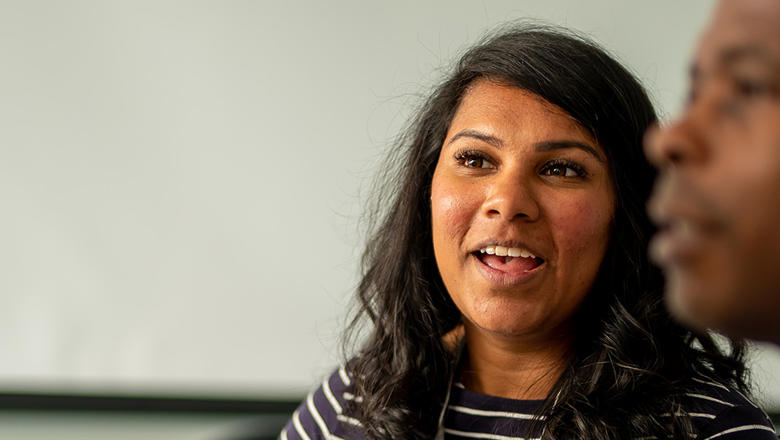
Postgraduate Guide
Download our postgraduate guide to discover more about our research...

Chat to students and staff
Chat to current students and staff to find out about life at King's.

Find your course
Ai and machine learning, advanced spatial analysis, anthropology, archaeology, architecture, arts and sciences, audiology and audiological sciences, prospective students graduate.
- Graduate degrees
- Taught degrees
- Taught Degrees
- Applying for Graduate Taught Study at UCL
- Research degrees
- Research Degrees
- Funded Research Opportunities
- Doctoral School
- Funded Doctoral Training Programmes
- Applying for Graduate Research Study at UCL
- Teacher training
- Teacher Training
- Early Years PGCE courses
- Primary PGCE courses
- Secondary PGCE courses
- Further Education PGCE programme
- Entry requirements
- How to apply
- The IOE approach
- Teacher training in the heart of London
- Why choose UCL?
- Entrepreneurship
- Inspiring facilities and resources
- Careers and employability
- Your global alumni community
- Your wellbeing
- Postgraduate Students' Association
- Your life in London
- Accommodation
- Funding your Master's
Research degrees
At Westminster, we are known for high-quality internationally recognised research in a wide range of subjects, for our combination of pure, practice-led and applied approaches, and for using our knowledge for the betterment of society.
We have a well-developed research degree programme leading to an MPhil or a PhD and a reputation for delivering high standards in research degree study in subjects ranging from Literature to Life Sciences, and from practice based Art and Design projects to political theory.
Whatever you want to be, wherever you want to go, you can start your journey at the University of Westminster, where everything that London has to offer is on your doorstep.
Research areas
Find out about the study options available in your research area and apply.
- Applied Management
- Architecture and Cities
- Computer Science and Engineering
- Finance and Accounting
- Life Sciences
- Management and Marketing
- Media and Communications
- Organisations, Economy and Society
- Social Sciences
How to apply
Before applying for a research degree at the University, browse through our research areas above to check if we offer supervision opportunities in your area of interest.
If you'd like to start an application, find out how to apply .
Graduate School
Completing your research at the University of Westminster means you belong to an academic School and also become members of our wider research community of doctoral researchers and research staff who meet and engage in a range of research focused events and activities through the Westminster Graduate School .
The Graduate School is a cross-disciplinary community which regularly come together for public lectures, exhibitions and symposia to discuss and celebrate our research. You will also participate in the Doctoral Researcher Development Programme, an innovative programme which promotes research integrity, public engagement and career development.
HR Excellence in Research
In February 2016, we received the European Commission HR Excellence in Research Award (HR EiRA). This recognised the University’s vigorous and transparent implementation strategy for improving the career development and management of researchers and our commitment to delivering research with impact.
Find out more about the HR Excellence in Research Award on the Researcher development page .

Related Pages
How to write your research proposal.
Advice on writing your research proposal before applying for University of Westminster.
Fees and funding
How much will it cost to study a research degree?
Research degree by distance learning
Find out about Research Degree distance learning options at the University of Westminster.
We use cookies to ensure the best experience on our website.
By accepting you agree to cookies being stored on your device.
Some of these cookies are essential to the running of the site, while others help us to improve your experience.
Functional cookies enable core functionality such as security, network management, and accessibility.
Analytics cookies help us improve our website based on user needs by collecting information, which does not directly identify anyone.
Marketing cookies send information on your visit to third parties so that they can make their advertising more relevant to you when you visit other websites.
- Current students
- New students
- Returning students
- Support for students
- Semester and term dates
- Policies and regulations
- Online learning tools
- Your feedback
- Studying off campus
- IT Services
- Results and graduation
- Student Portal
- Student handbook
- Student news

PhD opportunities
Introduction, join an established research community.
When you study for a PhD at UWL, you will join the international research and learning community of our collaborative research groups and Research Centres. Your studies will be supported both by your supervisors and our dedicated Graduate School .
Explore our subject areas and find your PhD opportunity below:
Computing and engineering
Film and media, hospitality and tourism, human and social sciences.
- Policing and law enforcement
Medicine and biosciences
- Nursing, midwifery and healthcare
PhD Business (West London Campus)
West London Campus

PhD Built Environment (West London Campus)

PhD Civil Engineering (West London Campus)

PhD Computer Science (West London Campus)

PhD Engineering (West London Campus)

PhD Mathematics (West London Campus)

PhD Creative Writing (West London Campus)

PhD English Literature (West London Campus)


PhD Film Studies (West London Campus)

PhD Media (West London Campus)

PhD Aviation and Air Transport Management (West London Campus)

PhD Food Business and Nutrition Science (West London Campus)

PhD Hospitality Management (West London Campus)

PhD Tourism Management (West London Campus)

PhD Criminology (West London Campus)

PhD Education (West London Campus)

PhD Psychology (West London Campus)

Policing and Law Enforcement
Phd policing and law enforcement (west london campus), phd law (west london campus).

PhD Ageing Research (West London Campus)

PhD Bioinformatics (West London Campus)

PhD Biomedical Science (West London Campus)

PhD Dementia Studies (West London Campus)

PhD Translational Medicine (West London Campus)

PhD Music (West London Campus)

PhD Global Health (West London Campus)

PhD Health (West London Campus)

PhD Midwifery (West London Campus)

PhD Nursing (West London Campus)

Explore our schools and colleges
Find out about the research specialisms of our academic schools and colleges, including details of current and past PhD students' projects and their supervisors and PhD opportunities.
Research degrees Claude Littner Business School

Research degrees London Geller College of Hospitality and Tourism

Research degrees School of Computing and Engineering

Research degrees School of Law

Research degrees London College of Music

Research degrees School of Human and Social Sciences

Research degrees London School of Film, Media and Design

Research degrees College of Nursing Midwifery and Healthcare

Research degrees School of Medicine and Biosciences
The vice-chancellor's phd scholarships, vice-chancellor's phd scholarships.
The University of West London is a forward-thinking University with an appetite for innovative, rigorous and impactful research.
As part of its research expansion strategy, the University is offering a number of opportunities for fully funded PhD scholarships.
Our scholarships are open to full-time and part-time home/settled students and comprise:
- Stipend of £22,000 per year (tax free)
- Tuition fees waived
- Duration: Three years
Part-time
- Stipend of £11,000 per year (tax free)
- Tuition
- Duration: Six years
PhD scholars will be expected to carry out teaching or research duties for a maximum of six hours per week (full-time) and three hours per week (part-time).
The University welcomes applicants who wish to study for a PhD research degree in one of its schools or colleges. Visit our PhD opportunities page for more information.
Deadlines for applications: Monday 25 November, 11:59pm
Applications can be made as part of your PhD application - please state on the application form that you would like to apply for the Vice-Chancellor's Scholarship.
Find out more about the full range of subject areas, terms and conditions and more on the applying for a PhD page .
Application deadline
Further information.
Particular attention will be paid to applications aligned with one (or more) of our research strategic priorities:
- Equality, Diversity and Inclusion (EDI) – We encourage applications promoting and embedding EDI values throughout the whole research process. We also encourage original research addressing key EDI-related challenges.
- Interdisciplinarity - We encourage applications sitting across several UWL Schools/Colleges and demonstrating innovative research focus and/or methodologies.
- Impact - We encourage applications demonstrating effect on, change or benefit to the economy, society, culture, public policy or services, health, the environment or quality of life, beyond academia.
Applying for a PhD

If you are considering applying for a PhD, the first step is to contact a supervisor in a relevant research area - contact emails are listed against projects above.
Find out more about the funding we offer, the application process and other frequently asked questions .
If you have any questions please contact us by email: [email protected]
Find out more
Research centres and groups.
Find out about our multi-disciplinary areas of expertise, research, and teaching.

Research impact
Learn how our research has helped communities locally, nationally and internationally.

The Graduate School
If you are interested in studying for a PhD or Professional Doctorate, the Graduate School is here to support your research.

Browse our January courses and apply today
We're here to support you, every step of the way.
Advertise a vacancy on our platform today.
Read about our Research Excellence Framework submissions and results
Contact us for press and interview requests
In 2024 UEL celebrates a Year of Science
- All results
Postgraduate research

Our research makes a positive impact
We're fitting our research closer than ever to real-world needs - all part of our drive to become the UK's leading modern university for research.
Hero Carousel
Growing research
You'll have an even wider choice of study areas at UEL, as we expand the number of our staff working on high-quality research.
Growing output of research
Our research power increased by 54% in REF 2021, to 538 compared to 350 in REF 2014.
Pioneering research
We're researching advanced robotic and neuroimaging techniques to develop pioneering treatments for stroke patients.
Why do research at UEL?
Your research at UEL will benefit from our location at the heart of Europe's largest regeneration area, rich in global companies and street-level creativity.
Our research programmes are wired into that energy, through our many contacts with our east London community neighbours. As part of our Civic Engagement drive, many of our taught research programmes involve working with community projects - helping real people and advancing knowledge at the same time.
There are no barriers. You'll be working closely with our academic staff - and in many cases have a chance to gain teaching experience by supervising undergraduates. Our postgraduate students highly rate their training and the degree of responsibility we offer: 89 per cent of postgraduate students felt they were encouraged to ask questions or make contributions in taught sessions, while 82 per cent felt their research skills had developed during their courses.
We'll give you the tools of the trade too: we've invested £170 million in new buildings and facilities over the past few years - including our new £14 million library on our Docklands campus.
How do I fund my research?
Start your postgraduate journey today by finding out about available funding sources.
If you graduated from UEL you may be eligible for a postgraduate course discount. If you progress directly with no gap year, you may receive up to 25 per cent discount, alternatively, you will receive a 10 per cent discount. See our Alumni Discount page for more details.
Study a PhD at UEL
Hear from Simone, who is studying for a PhD in Public Health, about her experience
What are my research options?
By studying for a research degree at UEL, you are making a big investment in your career, and making yourself stand out in an ever-more competitive jobs market.
A research degree is a big commitment, so you'll need to be highly organised, motivated and able to work independently for a minimum of three years' full-time study.
Whether you're motivated by a passion for study, a deep interest in a particular field where UEL has expertise, or simply to advance your career, you'll find UEL a supportive place to pursue your interests.
The main research-based courses are the Doctor of Philosophy (PhD) and Masters of Philosophy (MPhil). There are also many professional doctorates - aimed mainly at professionals who have already begun their careers.
You should study the relevant School's pages and courses to see if there is an academic member of staff who might be able to supervise your study.
OUR DOCTORAL PROGRAMMES
Professional doctorates.
- Prof Doc Counselling Psychology
- Prof Doc Clinical Psychology
- Prof Doc Cyber Diplomacy
- Prof Doc Data Science
- EdD Professional Doctorate in Education
- Prof Doc Educational and Child Psychology
- Prof Doc Fine Art
- Prof Doc Information Security
- Prof Doc Performing Arts
MPhils and PhDs
- MPhil PhD School of Business and Law
- MPhil PhD Psychology
- MPhil PhD Architecture, Computing and Engineering
- MPhil PhD School of Arts and Creative Industries
- MPhil PhD Social Sciences
- MPhil PhD School of Health Sport and Bioscience
- MPhil PhD Education
- MPhil PhD Applied Positive Psychology and Coaching Psychology
- MPhil PhD Sustainability, Development, and the Environment
UEL has a growing postgraduate talent pool, making up 20% of our student body
In the REF 2021, 54% of UEL research was judged to be world-leading or internationally excellent, with a further 37% internationally recognised
UEL researchers conducted the largest survey of youth cybercrime in the EU ever undertaken with 8000 respondents in 8 countries
Research for the real world
We're committed to research that makes a difference in the real world, to real communities. We combine classroom learning with community projects.
We have achieved the highest overall Grade Point Average (GPA) and per cent of 3*/4* rated research in London in key strategic areas such as Computer Science and Informatics.
Postgraduate scholarships and bursaries
View all the postgraduate scholarships and bursaries available to you and read the individual descriptions to see if you are eligible to apply.
Give feedback on this website
Help us make this site better by telling us what you think about this page.
Tell us about your experience
Browser does not support script.
- Prospective Students
- Current Students

PhD Programme in Law
The opportunity to undertake advanced legal research at one of the world's best law schools.
The London School of Economics is a world centre for advanced research and teaching with an outstanding reputation, with a campus situated in the heart of London, one of the most cosmopolitan cities in the world. Only a short distance from Europe's financial, legal and cultural centres, LSE stands at the crossroads of international debate, a location that is fundamental to our identity as an outward looking institution with an active involvement in UK and world affairs. Each year the School attracts many influential outside speakers. Regular events and seminars involving politicians, regulators, practitioners and academics take place to complement your studies.
LSE Law School is one of the UK's pre-eminent research institutions for law. Our academics are the authors of influential and often path-breaking scholarship, and many have globally leading reputations. LSE Law is also one of UK's largest law schools, with over 70 academic members of staff. It is a uniquely cosmopolitan academic community, with staff and students coming from all over the world. Our academics draw on a wide range of literatures and traditions, and pursue analyses that seek to situate the law within the political, social and economic context within which it is formed and operates.
PhD Programme
The PhD programme at the London School of Economics and Political Science offers the opportunity to undertake advanced legal research at one of the world's best law schools. Students in our PhD programme receive excellent training and work under the supervision of leading scholars with strong international, comparative and interdisciplinary commitments. Our doctoral students become members of a lively academic community which is at the cutting-edge of legal scholarship and which plays a major role in the education of lawyers and law teachers from around the world.
We hope that the questions you have about our PhD programme will be answered in these web pages. If you have additional questions, please do not hesitate to contact us , or see our Frequently Asked Questions ...
PhD Funding
PhD Current research
PhD placements What do our PhD students do after leaving LSE?
FAQs Your questions about the PhD programme
PhD completions Browse our completed PhDs
Careers Our careers information and resources
Visiting research students How to apply as a visiting student
PhD Academy A dedicated space for PhD students
LSE Life Academic, personal, professional development
Please enable JavaScript in your web browser to get the best experience.
- Find a course
- Foundation Programmes
- Undergraduate study
- Postgraduate study
- Research degrees
Fees and funding
- Costs of your course
- Funding your study
- How to pay your fees
- Why study with us
Where to study
- Online learning
- Study with a local teaching centre
- Study in Paris
- Study humanities in London
How to apply
- Undergraduate applications
- Postgraduate applications
- Help with your application
- Entry routes
- Am I qualified?
- English requirements
- Computer requirements
- Recognition of prior learning
- Supplying evidence
- What happens next?
- Transferring from another institution
- Student terms and conditions
- Inclusive practice and access
- MOOCs - free short courses
- Short courses
- Taster courses for schools
- Worldwide education delivered locally
- Register your interest
- Student Stories
- Current students
- Student portal
- Student blog
- Student services
- Accommodation in London
- Library services
- BLOOM @ Senate House
- Requesting a transcript or certificate
- Support and wellbeing
- Clubs and societies
- Getting involved
- Careers service
- Recent graduates
- Working with alumni
- Working with academics
- Information for employers
- Examinations and assessment
- Assessment timetables
- Entry and deadlines
- Exam centres
- Exam entry and results dates
- Assessment offences
- Mitigating circumstances
- Academic regulations
- Policies and procedures
- Student guide
- Student Protection Plan
- The Student Charter
- Access and Participation Statement
- Refund and Compensation Policy
- Complaints and appeals
- Register to Vote
- Preparing to graduate
- After Graduation
- Past ceremonies
- Students of federation members
- Research & Engagement
- School of Advanced Study
- Institute in Paris
- London Research & Policy Partnership
- Libraries and collections
- Centre for Online and Distance Education
- University of London Press
- Our research
- Public engagement
- Fellowships
- Collaborate with us
- Our federation
- Our Chancellor
- Senior Executive Team
- Our history
- Our global reputation
- Equality, diversity and inclusion
- Our civic role
- Strategy 2020-25
- Research & public engagement
- Study with us
- What makes us unique
- Board of Trustees
- Collegiate Council
- Statutes and Ordinances
- Academic Regulations
- Honorary Awards
- Annual reports and financial statements
- Charitable status
- Doing business with us
- Trust Funds
- Core policies
- Academic quality assurance
- Research governance
- Student policies and procedures
- Our services
- Senate House Library
- Intercollegiate Halls
- The Careers Group
- Our research libraries
- Conference & event hire
- Private housing services
- Short stay accommodation
- University Merchandise
- Work for us
- Becoming a teaching centre
- Contact and find us
- News & Events
- Past events
- Student blogs
- The Student Insider magazine
- Alumni & Supporters
- Alumni ambassadors
- Your alumni community
- New graduates
- Get involved
- Keep in touch
- Request a transcript
- The Convocation Project
- Ways to give
- Areas to support
- Recognising our donors
- Your impact
- Contact the Development Office
What are you looking for?
Popular courses.
- BSc Business Administration
- BSc Computer Science
- BSc Psychology
- International Foundation Programme
MSc Computer Science
Msc cyber security, msc professional accountancy, postgraduate study (master's degrees).

Advance your career or simply explore your academic interests through postgraduate study at the University of London and School of Advanced Study (SAS).
- Share this page on Facebook
- Share this page on X
- Share this page on LinkedIn
Enjoy flexibility in how, when and what you study
We offer humanities and social degrees through the School of Advanced Study , or a wide range of other online learning in subjects such as computer science to marketing, and many more, through the University of London .
If you’re not looking to commit to a full master’s, you can choose a shorter postgraduate certificate or diploma in a variety of subjects, with the option to progress towards a degree if you choose to.
What our students say
“The support I have received from the School of Advanced Study has been outstanding in terms of support from my supervisors as well as support in further developing key skills for my current PhD research and my career.”
Beatrice Cannelli, UK
PhD in Digital Humanities
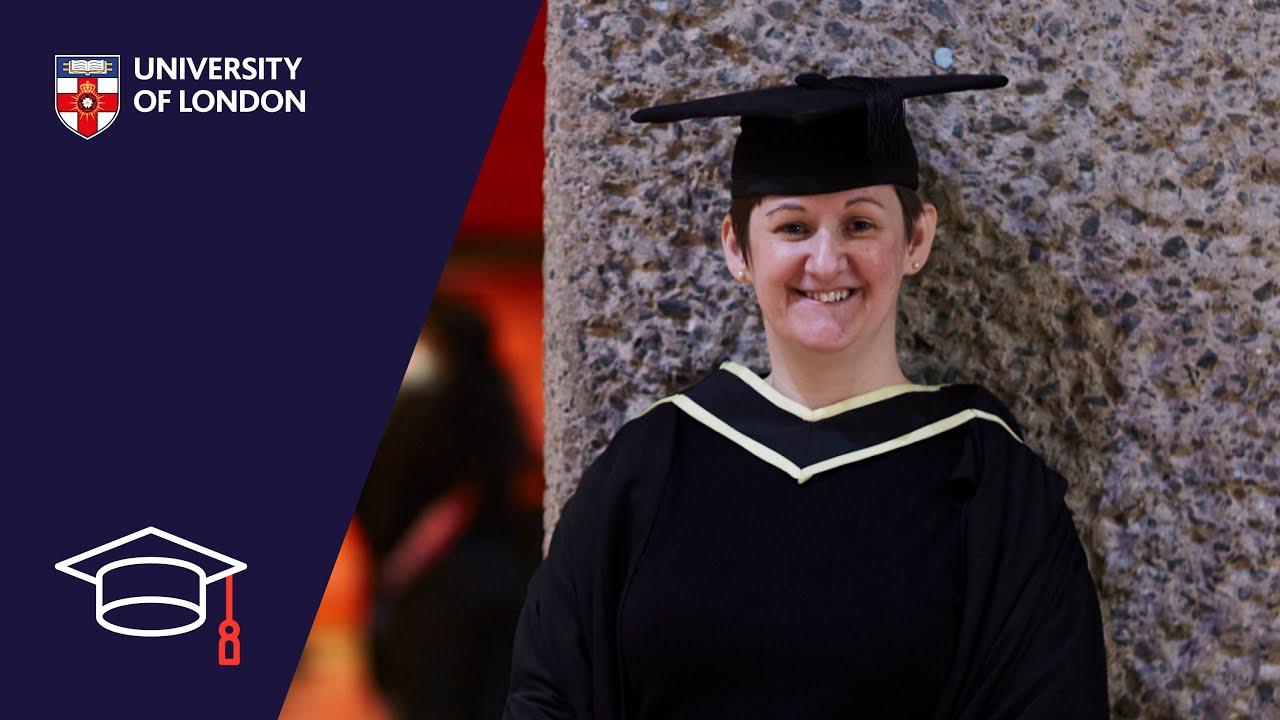
“My favourite aspect of my programme was the fact that I could learn at a time that suited me and fit it around my own personal and professional commitments – and also learn from people all across the world.”
Elizabeth Eves, UK
MSc Global Health Policy
“Distance and flexible learning provided access to courses or programmes that are not available locally, allowing me to explore new topics and pursue my interests.”
Moiz Ali Khan, UAE
All Postgraduate courses
Msc accounting and financial management, msc clinical trials, msc data science, msc epidemiology, ma global diplomacy, msc global environment and sustainability, msc health in humanitarian crises, ma history, place and community, msc human resource management, ma human rights, phd at the refugee law initiative, msc infectious diseases, phd at the institute of advanced legal studies, pgcert international sports management, phd at the centre for latin american and caribbean studies, pgcert learning and teaching in higher education, llm drafting legislation, regulation, and policy, ma art history, curatorship and renaissance culture, ma cultural, intellectual and visual history, ma history of the book, ma understanding and securing human rights, ma urban history and culture, msc marketing, msc organizational psychology, pgcert art history and renaissance culture, pgcert cultural, intellectual and visual history, phd at the institute of commonwealth studies, phd at the institute of english studies, phd at the institute of historical research, phd at the institute of languages, cultures and societies, phd at the warburg institute, phd digital humanities, phd digital humanities by practice, llm postgraduate laws, msc project management, msc public health, ma refugee protection and forced migration studies, msc supply chain management and global logistics, msc veterinary epidemiology and public health, find out more.

PhD Handbook
Phd In London: A Comprehensive Guide To Phd In London For International Students

London is now the academic capital. The city is more than just a place to explore. The academic standards here have attracted the attention of multiple international students to pursue graduate degrees here; one such is Phd. Pursuing a Phd in London has its perks, such as reputed universities, exceptional learning experiences etc.
The Phd programs offered at the top Phd in London universities are diverse. This means that the courses here cater to every student's interest globally. So, if you’re looking to pursue Phd programs in London, this blog covers everything you need to know to get started.
An Overview Of Phd In London
To help you get started about Phd in London, let’s first understand what to expect when applying for Phd programs in London:
Why Study Phd In London?
To make a confident investment, you must first analyse what benefits you are receiving from it. You know that London is a better place to choose when it comes to academics, but what makes it worth the investment? Here are five reasons:
- Study From QS-Ranked Universities- London is home to the best Phd universities. These universities are ranked on the QS-World university rankings of 2023. Due to their demand on this list, most international students consider them for their postdoctoral studies. A few are Imperial College London ( Ranked 6), UCL (Ranked 8), etc.
- Home To Top Brands- Another great reason to choose London for Phd studies is their career hub. Almost all of the top brands’ main headquarters are in London. To name a few are Tesco, McDonald's, BBC, etc. This allows international students to learn from the best minds and work with them.
- Networking Opportunities- Students can also benefit from networking in London. Looking closely, you can see many local businesses surrounding you. You can engage with them and try to build your skills accordingly. Apart from this, engagement can also lead to networks that can help you find your ideal job.
- Student-Friendly City- Lastly, London is a student-friendly city . The nightlife, the places to visit, the bookstores, etc. are all great entertainment options for international students to study and live well here.
Suggested: Comprehensive guide to pursuing Phd in Uk
Top 5 Phd Universities In London
multiple Phd universities in London cater to the Phd interest of students globally. These universities are highly ranked, offer a diverse range of Phd courses in London, etc. Thus to help you make the right choice, here are the top universities to pursue Phd in London:
Imperial College London
University college london (ucl), king’s college london, london school of economics, queen’s mary university of london.
Imperial College of London is one of the highly chosen universities to pursue Phd studies. The university offers a diverse range of Phd programs, and each of the programs is designed to provide students with the right knowledge and skills required.
UCL is another popular university to pursue Phd studies. In fact, the university has a diverse range of Phd programs offered, including creative topics such as film, literature, education, etc.
King’s College London is another popular study destination to pursue Phd programs in London. They offer full-time and part-time programs catered to the interests of students accordingly.
London School of Economics is another great choice to pursue Phd studies in London. They offer five Phd programs that are focused on Economics, Geography and Environmental studies.
Lastly, Queen’s Mary University of London is the top five choices when considering to pursue Phd from London. This university also offers a diverse range of Phd programs as well as an insightful learning experience.
Eligibility Criteria To Pursue Phd Programs In London
To apply to the top Phd colleges in London, international students should meet the set eligibility criterias. These criterias can differ based on the university choice. However, there is standard requirement enquired by all, such as:
A Bachelor’s and Masters Degree
English language proficiency test.
International students should have completed an undergraduate and Masters degree from an accredited university, and with reference to the program they wish to pursue Phd from. It is important students score a good grade in both to increase their chances of getting accepted at their dream Phd university in London.
International students should prove their English language skills. Thus, writing and clearing the English proficiency tests are mandatory to do the same. Here are the popular exams undertaken and the score required, IELTS - 7.5, TOEFL ibt- 100, PTE - 7.5.
Admission Process For Phd Courses In London
To successfully meet the admission criterias for Phd colleges in London, you need to follow a simple admission process. Ensure you meet the following steps:
- Identify which are the Phd universities in London
- Email the Phd supervisor if you wish to study from a particular individual
- Submit a research proposal based on the Phd program chosen
- Check the chosen universities' entry requirements
- Fill the online application form
- Write and clear any entrance exams in UK
- Submit all relevant documents before the application deadline
- Attend any interview if scheduled by the university
- Once accepted, apply for UK student visa and arrange for funds
Documents Required For Phd Colleges In London
To complete your eligibility criterias, international students should send in a set of supporting documents. Ensure you check the list below:
- All official transcripts
- Research Proposal
- Filled in online application form
- Statement of Purpose
- Two Letters of Recommendation
- Proof of English Language requirements
Cost Of Studying Phd In London
To study at Phd universities in London, you require to calculate the complete costs to arrange for your fundings. Two aspects contribute to the cost of studying Phd in London: tuition fees and the cost of living.
Let’s learn about each of them one by one:
Tuition Fees
The Phd in London Fees differs based on the university and program chosen. For each program, the fees can be different. Thus to give you an overall picture, the Phd in London fees are between £16,000- £50,000/year for a full-time basis. Most of your fees will be half of the full-time ones for students who wish to opt for part-time.
Cost of Living
To survive in London, international students require a minimum of £1500/month. The expenses can vary accordingly, such as the type of accommodation chosen, which area in London you’ll live, where you dine? and above all, your lifestyle choices.
Suggested: Total cost of studying in UK for international students
Scholarship Opportunities For Phd In London
To pursue Phd in London for international students, calculate the cost factors. As seen above, there are multiple aspects that contribute to the complete study of a Phd program here. Thankfully, with Phd scholarships London, monetary stress can take a step back.
The perks of availing of scholarships are receiving funding that can support students with financial needs. From covering core costs such as tuition fees, living expenses, etc, to offering grant money during the study period, scholarships make it convenient for international students to pursue Phd here.
Here is an overview of scholarships to pursue Phd in London:
Suggested: View more scholarships to study in UK for international students
Career Opportunities After Phd In London For Indian Students
After you complete the courses for Phd in London for Indian students, it’s time to step into the professional world. UK believes that the contributions of the Phd holders can impact their economic growth. Thus, plenty of job opportunities here offer an impressive salary package.
To help you understand better, here is an overview of job profiles and salary figures after Phd in London:
PR Opportunities After Phd In London

You’ve now completed your Phd programs in London and have graduated from the top Phd colleges in London, what next?
Apart from being a good academic choice, London is also home to well-established brands such as HSBC, Unilever, etc. This demand has led most international students to consider settling down permanently in London.
So, how can you get a PR after your Phd in London?
- Students need to complete their academic studies by scoring good grades
- Students should apply for the Graduate Route visa in order to apply for the UK stay. For Phd students, the stay is available for up to 3 years.
- During the three-year stay, Phd students should find a job or find ways to enhance their current skills.
- In order to apply for a PR in London, UK, students should have completed five years of professional experience. This means once your three years are completed, students can apply for a Tier 5 visa where they can work for another two years here.
- Once five years are completed, students need to then apply for an ILR visa (Indefinite Leave to Remain). It is better to find an ILR job as well.
- Ensure you meet all PR requirements such as good grades, no criminal records, exhibited ethical behaviour, and passed the English and life knowledge Test.
- It takes a minimum of six months for your ILR visa to be processed. Once done, you’ve received PR and are eligible for all rights of the country.
Wrapping Up….
Phd in London for Indian students provides a golden opportunity to study in a globally recognized educational system. London has been more than just a popular tourist destination. Today, multiple international students pursue various degree programs, such as Phd in this city as it is a prominent destination for academic and career development. Thus if you wish to explore more about Phd programs in London and more, speak to our Yocket counsellors today.
Frequently Asked Questions For Phd In London
How long is a Phd in London?
A Phd in London study duration is three years.
What are the part-time Phd courses in London?
There are multiple part-time Phd courses in London for international students to choose from, such as Phd in architecture, communications and media, archaeology, etc.
Can you pursue Phd in London with scholarships?
Yes, international students can pursue Phd scholarships London during their study period. These scholarships will provide the right funding opportunity to support students financially here. To name a few are the Gates Cambridge Scholarship, Imperial College London President’s Phd Scholarships, etc.
What is another name for ‘Phd’ in London?
Doctorate of Philosophy is another popular terminology used to refer to Phd studies in London.
Can you get a Phd in London for international students?
Yes, the country is home to multiple Phd universities in London that offer a range of courses in this degree program. Students can pursue any course they wish and experience an advanced and enhanced learning experience from the best minds in the chosen study industry.

More Topics
Top Premium Admits
Columbia University
Yocketers Admitted
Scholarships granted

Sharwari Bhosale
Cornell University

Atharva Thodge
New York University

Shravan Khunti
University of California, Los Angeles

Prateeka Rawat
Johns Hopkins University

Kaustubh Rai
University of Washington

Neeharika Eddula
University of Pennsylvania

John Harshith
University of Toronto

Meghamala Dash
Duke University
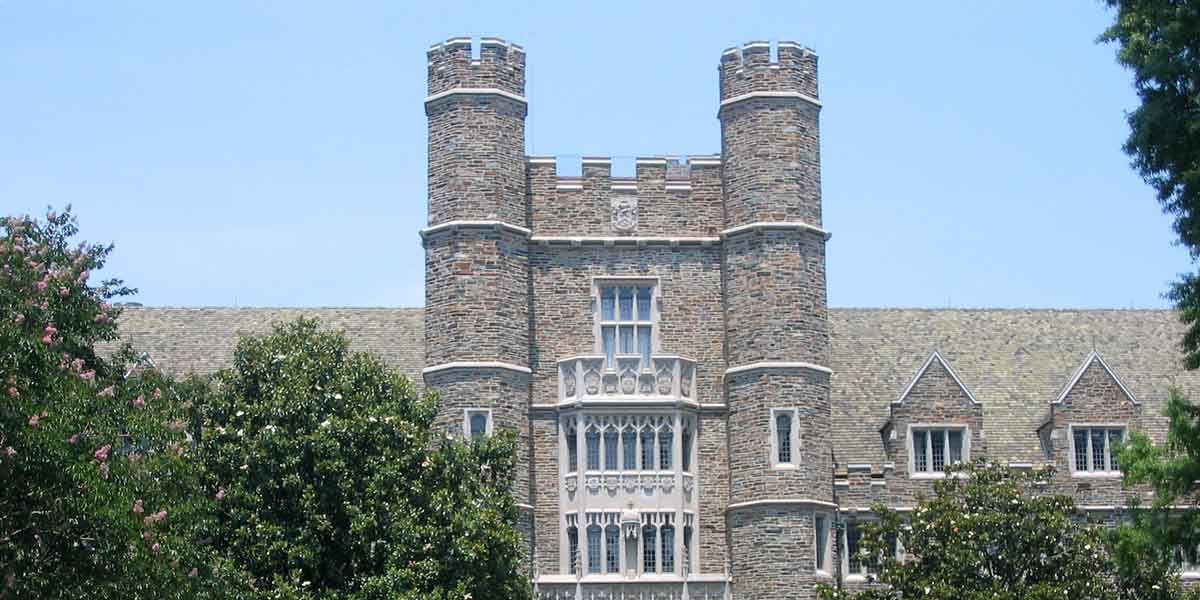
Varun Bhardwaj
University of Michigan, Ann Arbor
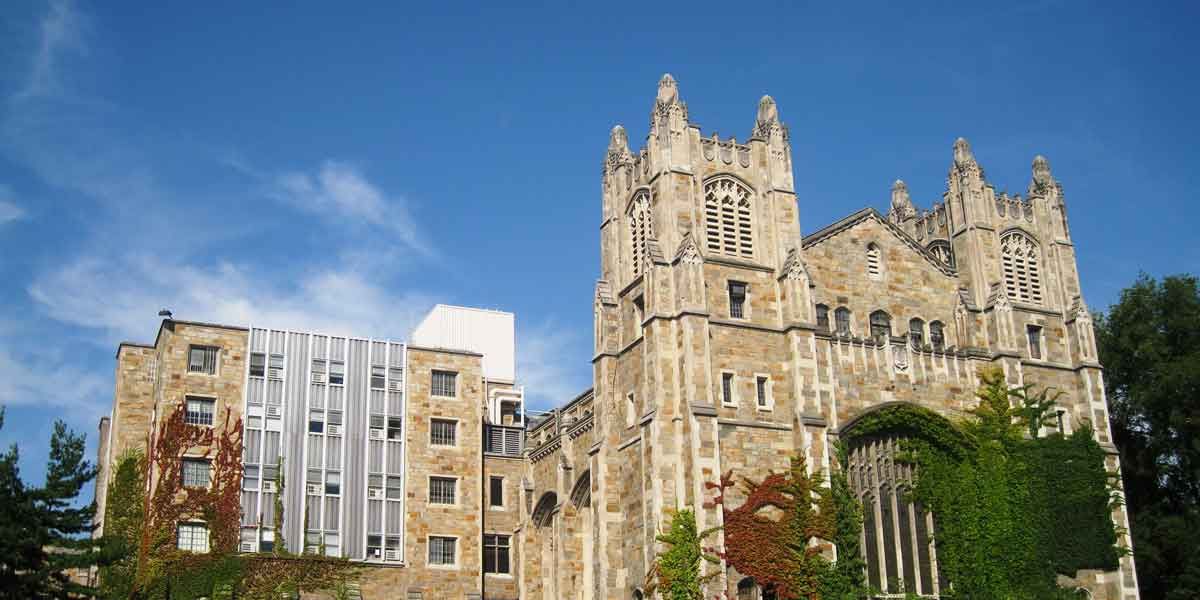
Romil Gupta
University of California, San Diego

Harshit Timmanagoudar
The University of Chicago
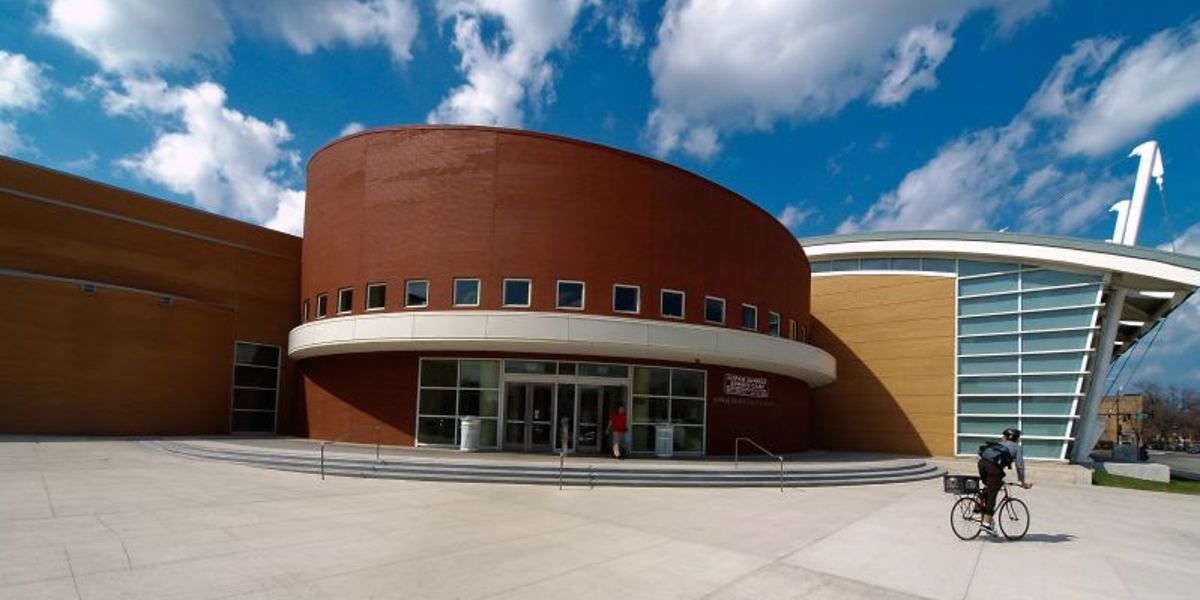
Northwestern University

The University of Edinburgh

Nandita Shekar
Articles you might like
The Indian Dream To Go For Higher Studies Abroad?
Hold all the aces before you depart for your higher studies
What After SAT / ACT Exam? | Things to do for Studies Abroad
Upcoming Events
Scholarships and Other Funding Strategies 2025
June 15th, 7:00 pm IST | 1hr
Fireside chat with Brown uni admitted student
June 21st, 3:00 pm IST | 1hr
Looking for Funding options: Scholarships, RA & TA are the way forward!
July 2nd, 5:00 pm IST | 1hr

IMAGES
VIDEO
COMMENTS
SOAS University of London. (4.1) A majority of our PhD graduates have embarked on an academic career, taking up lectureships in universities in the UK as well as abroad, or Read more... 3 years Full time degree: £4,860 per year (UK) 6 years Part time degree: £2,430 per year (UK) Apply now Visit website Request info.
MPhil and PhD opportunities are available on-campus and by arrangement through our self-governing member institutions and research institutes, including the School of Advanced Study. Many of these institutions have performed highly in the Research Excellence Framework and are consistently ranked highly for research among UK universities ...
A PhD at London Business School sets you on the path to an excellent academic career and a faculty position at a world-class business school or university. ... There is no residential accommodation at the School, but students can apply for accommodation in some of the University of London Intercollegiate Halls of Residence. If you are accepted ...
Undertaking postgraduate research allows you to develop in-depth knowledge while making a meaningful contribution to your chosen field. The School of Advanced Study's eight world-renowned institutes offer expertise in a broad range of humanities disciplines. Choose between on-campus study or online PhD supervision from anywhere in the world.
A PhD (Doctor of Philosophy) is the most common type of doctoral degree and the highest level of academic qualification you can achieve. It normally takes between three and four years of full-time work to complete. It is also possible to undertake a PhD part time, over five to six years. The main activity of a PhD is to carry out an original ...
You can pursue a PhD in any area of research within the University where suitable expertise is available to support the proposed project. Cross-disciplinary projects are welcome. The University provides a supportive framework for research and each student's work is carefully overseen and progress monitored. It is also possible to study a PhD ...
King's College London is a world-leading university, dedicated to the advancement of knowledge, learning and society. Our postgraduate research opportunities enable candidates to pursue their specific research area, alongside academics who are leading the way in their field. Depending on the area of research candidates can either choose to ...
Film Studies MPhil/PhD Faculty of Arts and Humanities | Centre for Multidisciplinary and Intercultural Inquiry UCL sits at the centre of the vibrant, multicultural and cinematic city of London. The university, which was the first to establish Film Studies in Britain, houses a thriving graduate research culture in the subject alongside ...
The Graduate School is a cross-disciplinary community which regularly come together for public lectures, exhibitions and symposia to discuss and celebrate our research. You will also participate in the Doctoral Researcher Development Programme, an innovative programme which promotes research integrity, public engagement and career development.
This unequalled multicultural British study environment features high-ranking international universities, modern facilities, and experienced teachers applying the latest research. Study abroad in London and you will have everything you need to support your personal and professional development. 7.6M. Population. 1137 - 2160 GBP/month.
The University of West London is a forward-thinking University with an appetite for innovative, rigorous and impactful research. As part of its research expansion strategy, the University is offering a number of opportunities for fully funded PhD scholarships. Our scholarships are open to full-time and part-time home/settled students and comprise:
Search Funded PhD Projects, Programmes & Scholarships in London. Search for PhD funding, scholarships & studentships in the UK, Europe and around the world. PhDs ; ... Loughborough University London is a part of technē; a consortium which comprises nine universities in London and the South-East, with almost 60 AHRC studentships to award each ...
MPhil PhD Sustainability, Development, and the Environment. 20%. 20%. UEL has a growing postgraduate talent pool, making up 20% of our student body. 54%. 54%. In the REF 2021, 54% of UEL research was judged to be world-leading or internationally excellent, with a further 37% internationally recognised. 8000.
The PhD programme at the London School of Economics and Political Science offers the opportunity to undertake advanced legal research at one of the world's best law schools. Students in our PhD programme receive excellent training and work under the supervision of leading scholars with strong international, comparative and interdisciplinary ...
MRC Laboratory of Medical Sciences (LMS) Fully funded studentships available for our 4 year PhD programme commencing October 2025. The MRC LMS is a core-funded transdisciplinary institute in which scientists and clinicians collaborate to advance the understanding of fundamental biology and its relevance to human health. Read more.
London is an academic hotspot, with the most universities of any UK city. It is home to 17 ranked universities in total. Leading London universities include Imperial College London and University College London (UCL). As the data from the QS Best Student Cities ranking shows, London is not exactly a cheap option for students.
155. 122. 301-400. University of Liverpool. =168. =176. 101-150. Information in this table is based on the latest Times Higher Education World University Rankings, QS World University Rankings and Academic Ranking of World Universities. Visit their websites for more information.
The Senate House, the headquarters of the federal University of London. London has one of the largest concentrations of universities and higher education institutions in the world. It has 40 higher education institutions [1] (not counting foreign Universities with London branches) and has a student population of more than 400,000. [2] [3] Among the institutions in London are some of the old ...
Advance your career or simply explore your academic interests through postgraduate study at the University of London, choosing from on-campus humanities degrees at the School of Advanced Study or supported online learning in subjects ranging from computer science to marketing. Enjoy flexibility in how, when and what you study.
Tuition Fees. The Phd in London Fees differs based on the university and program chosen. For each program, the fees can be different. Thus to give you an overall picture, the Phd in London fees are between £16,000- £50,000/year for a full-time basis.